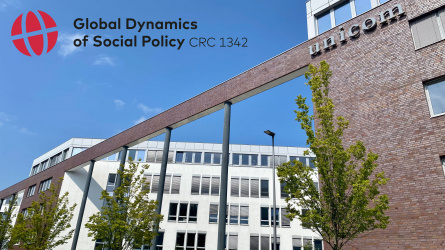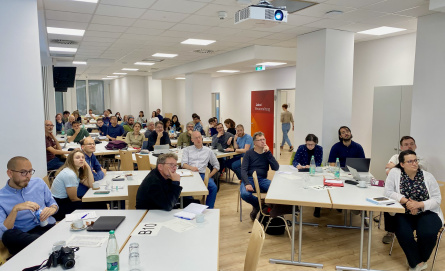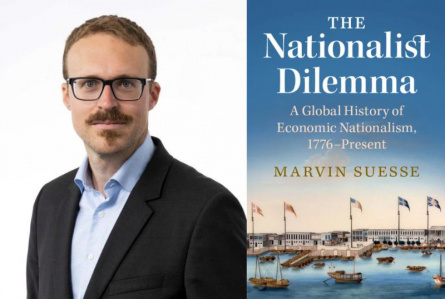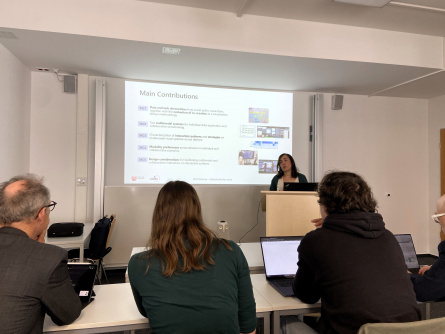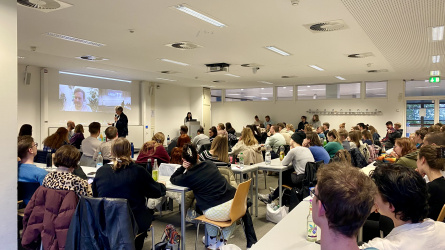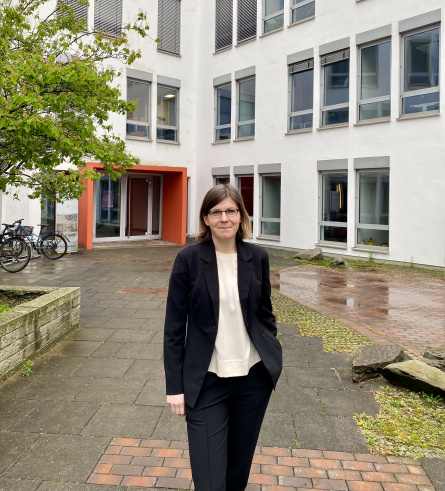A national agenda-setting policy dialogue planned for the summer of this yearDr. Gulnaz Isabekova-Landau, postdoctoral researcher in the Collaborative Research Center project B06, which examines social policies in Eastern Europe, South Caucasus, and Central Asia, participates in the "Health in the Mountains Agenda" implemented by the Government of the Kyrgyz Republic with support from the World Health Organization (WHO).
The "Health in the Mountains Agenda" builds on the initiative of the President of the Kyrgyz Republic, championing 2023–2027 as the "Five Years of Action for the Development of Mountain Regions", which was endorsed at the 77th session of the United Nations General Assembly.
The "Health in the Mountains Agenda" focuses on rural health equity in mountainous areas of the country, cross-sectoral work on the determinants of health, and the role of gender equality and women’s empowerment in ensuring a strong rural health workforce and addressing health determinants. Dr. Gulnaz Isabekova-Landau is involved in the preparatory research targeting these areas and supporting a proposed policy dialogue, which is expected to include national authorities in the health sector, civil society organizations, multilateral system partners, and research institutes. Her role in this initiative builds on her years of experience researching healthcare systems and access to healthcare in Eastern Europe, South Caucasus, and Central Asia, as well as her recently published book on the sustainability of health aid to the Kyrgyz Republic.
Publications
Isabekova, G. (2024). Stakeholder Relationships and Sustainability. The Case of Health Aid to the Kyrgyz Republic. London, UK: Palgrave Macmillan. ISBN: 978-3-031-31990-7 Add to Citavi project by ISBN.
Isabekova, G. (2020). Mutual learning on the local level: The Swiss Red Cross and the Village Health Committees in the Kyrgyz Republic. Global Social Policy 21(1), 117-137.
Isabekova, G. and Pleines, H. (2020). Integrating development aid into social policy: Lessons on cooperation and its challenges learned from the example of health care in Kyrgyzstan. Social Policy & Administration, online first.
Isabekova, G. (2019). The Contribution of Vulnerability of Labour Migrants to Drug Resistance in the Region: Overview and Suggestions. European Journal of Development Research 31, 620-642.
Kontakt:Dr. Gulnaz Isabekova-LandauSFB 1342: Globale Entwicklungsdynamiken von Sozialpolitik, Forschungsstelle Osteuropa
Klagenfurter Straße 8
28359 Bremen
Tel.: +49 421 218-57073
E-Mail:
gulnaz@uni-bremen.de
